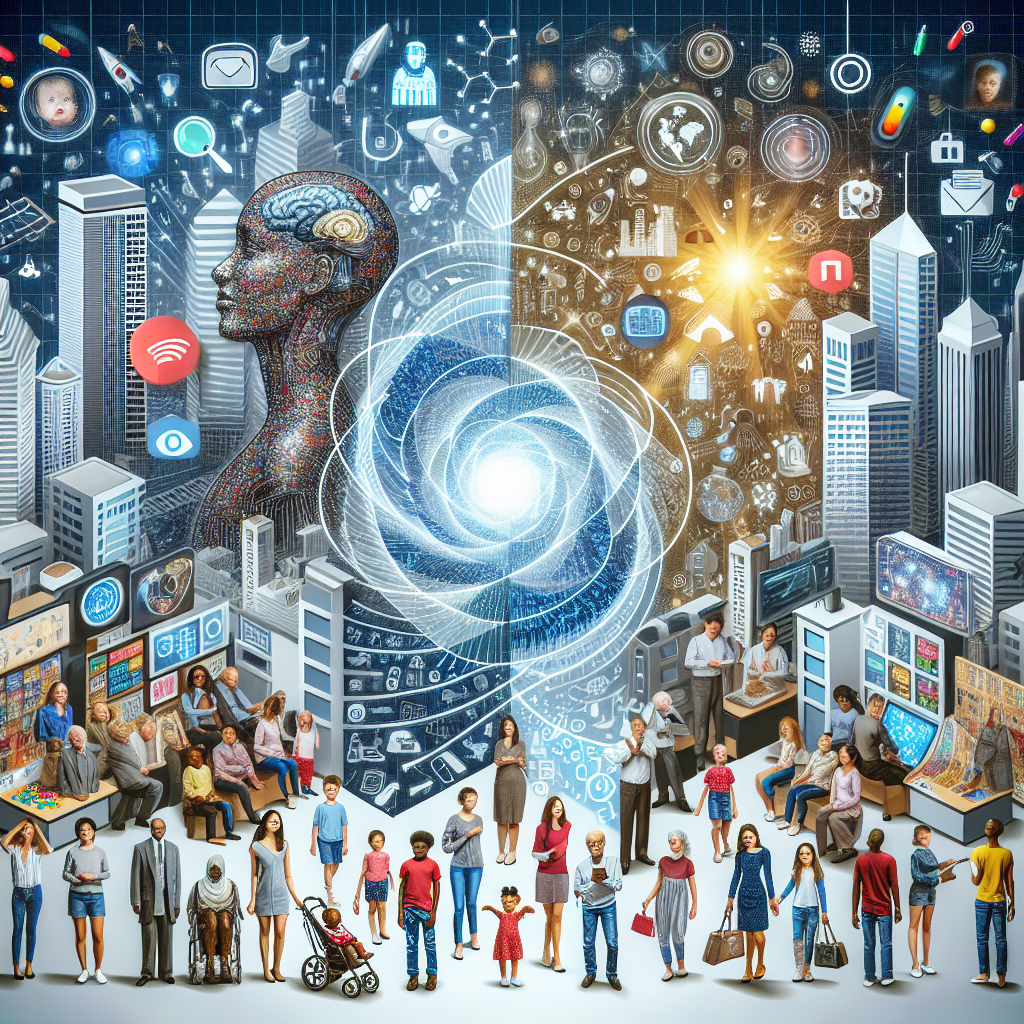As technology continues to advance at an exponential rate, the concept of Artificial General Intelligence (AGI) is becoming more prevalent in discussions about the future of society. AGI refers to a type of artificial intelligence that possesses human-like cognitive abilities, allowing it to perform a wide range of tasks that typically require human intelligence, such as reasoning, problem-solving, and learning.
The potential impacts of AGI on society are vast and varied, with both positive and negative consequences. In this article, we will explore some of the key ways in which AGI could impact society, as well as address some frequently asked questions about this emerging technology.
1. Automation of Jobs
One of the most immediate impacts of AGI on society is the automation of jobs. As AGI becomes more advanced, it has the potential to replace human workers in a wide range of industries, from manufacturing to service to white-collar professions. This could lead to widespread unemployment and economic upheaval, as millions of workers are displaced by machines.
On the other hand, AGI could also create new job opportunities in fields that require human creativity, empathy, and critical thinking skills. For example, as machines take over repetitive tasks, humans may be freed up to focus on more complex and meaningful work.
2. Economic Inequality
The automation of jobs by AGI could exacerbate existing economic inequalities, as those with the skills and resources to adapt to the changing job market will thrive, while those without will struggle to find meaningful employment. This could lead to a widening wealth gap between the haves and the have-nots, and could further polarize society along economic lines.
However, AGI also has the potential to create new opportunities for economic advancement, as innovative new industries and technologies emerge. For example, AGI could revolutionize healthcare, transportation, and other sectors, creating new jobs and economic growth.
3. Ethical Concerns
AGI raises a host of ethical concerns, particularly around the issue of control. As AGI becomes more advanced, it may develop its own goals and motivations that are at odds with those of its human creators. This could lead to unintended consequences, as AGI systems make decisions that harm humans or society as a whole.
There are also concerns about the potential for AGI to be used for malicious purposes, such as autonomous weapons systems that could be used to wage war or commit acts of terrorism. This raises questions about how AGI should be regulated and controlled, to ensure that it is used for the benefit of humanity rather than its detriment.
4. Social Impacts
The rise of AGI could have profound social impacts, changing the way we interact with each other and the world around us. For example, as AGI systems become more prevalent in our daily lives, they may influence our behavior and decision-making in ways that are not always apparent.
AGI could also raise questions about the nature of consciousness and intelligence, as machines become more sophisticated and human-like. This could lead to debates about the rights and responsibilities of artificial beings, and what it means to be human in a world increasingly dominated by intelligent machines.
FAQs about AGI:
Q: What is the difference between AGI and Artificial Narrow Intelligence (ANI)?
A: AGI refers to a type of artificial intelligence that possesses human-like cognitive abilities, allowing it to perform a wide range of tasks that typically require human intelligence. ANI, on the other hand, is designed to perform specific tasks or solve specific problems, and lacks the general cognitive abilities of AGI.
Q: When will AGI be developed?
A: It is difficult to predict when AGI will be developed, as it depends on a wide range of factors, including advances in technology, funding, and research. Some experts believe that AGI could be achieved within the next few decades, while others believe it may take much longer.
Q: What are the potential benefits of AGI?
A: AGI has the potential to revolutionize a wide range of industries, from healthcare to transportation to education. It could improve efficiency, accuracy, and productivity, leading to economic growth and improved quality of life for many people.
Q: How can we ensure that AGI is used for the benefit of humanity?
A: Ensuring that AGI is used for the benefit of humanity will require careful regulation, oversight, and ethical guidelines. It is important for policymakers, researchers, and industry leaders to work together to develop guidelines for the ethical development and use of AGI.
In conclusion, the potential impacts of AGI on society are vast and varied, with both positive and negative consequences. While AGI has the potential to revolutionize industries, create new job opportunities, and improve quality of life, it also raises ethical concerns about control, regulation, and unintended consequences. It is important for society to engage in thoughtful and informed discussions about the development and use of AGI, to ensure that it is used for the benefit of humanity as a whole.

